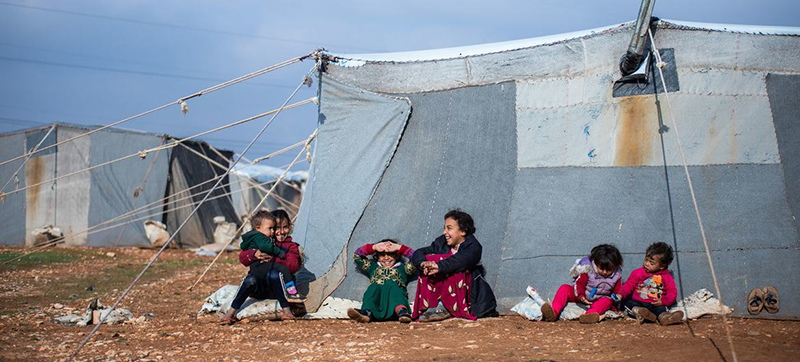 UNHCR
UNHCR
More than 100 million now forcibly displaced: UNHCR report
New York: A staggering 100 million people have now been forced to flee their homes globally, the UN refugee agency, UNHCR, said on Thursday, highlighting worldwide food insecurity, the climate crisis, war in Ukraine and other emergencies from Africa to Afghanistan as leading causes.
“Every year of the last decade, the numbers have climbed,” said UNHCR chief Filippo Grandi. “Either the international community comes together to take action to address this human tragedy, resolve conflicts and find lasting solutions, or this terrible trend will continue.”
Today, one in every 78 people on earth is displaced; it’s a “dramatic milestone” that few would have expected a decade ago, UNHCR said.
By the end of 2021, the number displaced by war, violence, persecution and human rights abuses stood at 89.3 million, according to the agency’s annual Global Trends report.
That was up eight per cent from 2020 and “well over double the figure of 10 years ago”, the report’s authors said, attributing last year’s increase to numerous escalating conflicts “and new ones that flared”.
Food insecurity driver
The 100 million displaced figure was reached in May, 10 weeks since the Russian invasion of Ukraine prompted a global cereal and fertilizer shortage from these major exporters that UN humanitarians have reacted to with increasing alarm.
Asked at a press conference in Geneva whether the global food insecurity crisis now underway was likely to push yet more people to leave their homes, High Commissioner Grandi said he “could not imagine how” it could be otherwise.
“If you have a food crisis on top of…war, human rights (violations), climate, you name it; on top of that if you have a food crisis, it will just accelerate the trends are described in this report and that we have seen accelerate in already in the first few months of the year.”
This meant that what countries were doing to withstand the spiralling cereal and fuel prices was of paramount importance also to prevent a larger number of people moving, the UNHCR chief continued, “which if you ask me how many, I don’t know, but it could be pretty big numbers”.
Conflict-driven displacement
In all, 23 countries with a combined population of 850 million faced “medium or high-intensity conflicts”, the UN agency said, citing World Bank data.
Among the 89.3 million globally displaced last year, 27.1 million were refugees – 21.3 million under UNHCR’s mandate, and 5.8 million Palestinians under the care of the UN Relief and Works Agency, UNRWA.
Another 53.2 million were internally displaced people, 4.6 million were asylum seekers and 4.4 million were Venezuelans left with little option but to flee their country’s economic and political crisis.
Data from the UNHCR report underscored the crucial role played by the world’s developing nations in sheltering displaced people, with low and middle-income nations hosting more than four in five of the world’s refugees.
With 3.8 million refugees within its borders, Türkiye hosts the largest number of refugees, followed by Colombia, with 1.8 million (including Venezuelan nationals), Uganda and Pakistan (1.5 million each) and Germany (1.3 million).
Relative to their national populations, the Caribbean island of Aruba hosted the largest number of Venezuelans displaced abroad (one in six), while Lebanon hosted the largest number of refugees (one in eight), followed by Curaçao (one in 10), Jordan (one in 14) and Türkiye (one in 23).
Misery for millions
Among the major new humanitarian crises highlighted in 2021, UNHCR noted that conflict in Ethiopia’s Tigray region pushed at least 2.5 million more people into displacement inside their country, with some 1.5 million of them returning to their homes during the year.
In Afghanistan, the Taliban takeover of Kabul in August 2021 resulted in displacement inside the country and into neighbouring nations. The number of people displaced internally rose for the 15th straight year, UNHCR said, even as more than 790,000 Afghans returned during the year.
Finally, the Democratic Republic of the Congo, Nigeria, South Sudan, Sudan, Syria and Yemen saw increases of between 100,000 and 500,000 people displaced internally in 2021.
Support Our Journalism
We cannot do without you.. your contribution supports unbiased journalism
IBNS is not driven by any ism- not wokeism, not racism, not skewed secularism, not hyper right-wing or left liberal ideals, nor by any hardline religious beliefs or hyper nationalism. We want to serve you good old objective news, as they are. We do not judge or preach. We let people decide for themselves. We only try to present factual and well-sourced news.







